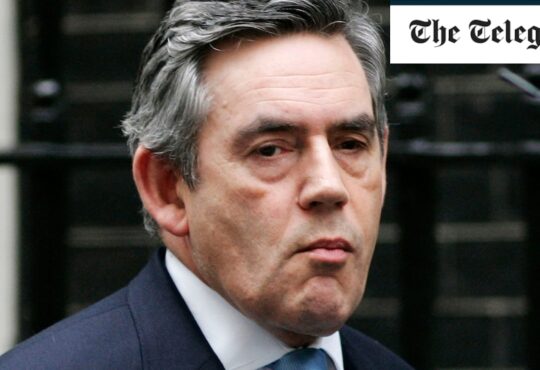
1. What’s gone wrong for the UK?
Even before Truss’s ill-fated policy plan, the UK’s economy was lagging its peers. It took a heavier blow from the coronavirus than many other European economies, in part because it relied more on services and consumer spending, both of which were hurt by repeated lockdowns. The UK led the push to boycott energy exports from Russia over its invasion of Ukraine, then suffered from the resulting bout of global inflation, which worsened social tensions and poverty and triggered labor unrest affecting railroads, health services, colleges and the country’s biggest phone company. Britain’s is the only major economy still smaller than it was before the pandemic. India’s recently surpassed it as the world’s fifth-largest. In November, the stock market in Paris displaced London’s as Europe’s biggest.
2. What triggered the crisis?
Shortly after Truss replaced Boris Johnson as premier, her government unveiled what would have been the biggest tax cuts in half a century, without offering a convincing plan to pay for them. The measures threatened to fuel inflation just as the Bank of England, along with other central banks, was raising interest rates to combat a surge in prices. After the plans were announced, investors demanded higher returns for holding government bonds, inflating the government’s debt servicing costs and making it harder to repay the money it borrowed during the pandemic. The bond eruption also made business loans and home mortgages costlier and hammered the reputation of Truss’s Conservative Party for sound economic management.
3. Why did markets react so dramatically?
The plan sent the British currency tumbling to its lowest level ever against the US dollar and caused a record spike in bond yields. That created a problem for pension funds that hold mostly government bonds and had invested in derivatives to ensure their assets always matched their liabilities. Their hedging strategies weren’t designed to handle this level of bond-price volatility, and they were faced with sudden demands for more collateral that threatened to create a downward spiral in government debt. The BOE stepped in and bought bonds to prevent a meltdown in credit markets.
The central bank’s intervention calmed the market, Truss resigned and most of her plans were scrapped. But yields on 10-year government bonds were still about 35 basis points higher in November than when she came to office in early September. The failed experiment left her successor, Rishi Sunak, needing deeper cuts to state spending and higher taxes to restore the government’s fiscal credibility. That’s likely to drain momentum from an economy that was already weakened by Britain’s departure from the European Union in 2020. According to the independent Office for Budget Responsibility, Britain’s trade with the EU is set to be about 15% lower in the long term than if it had stayed in the bloc. Growth in the country’s productivity, or economic output per hour worked, the key to improving living standards, was the second-lowest among the Group of Seven industrialized nations between 2009 and 2019. The government’s critics often blame this “lost decade” on cuts to education, vocational training and infrastructure investment.
5. Where does this leave things?
The problems in Britain have revived memories of 1976, when it needed a loan from the International Monetary Fund to avoid a currency crisis. Some economists say the country is becoming like an emerging market, with a currency, a debt profile and politics so volatile that investors have become reluctant to venture in unless they’re compensated with higher returns. The current-account deficit — which includes the difference between the value of exports and imports of goods and services — hit 7.2% of gross domestic product in the first quarter of 2022, the most since records began in 1955, leaving the nation more vulnerable to market gyrations if there’s a crisis of confidence. The UK has usually been able to finance the deficit as foreigners were eager buyers of British assets, thanks partly to a dynamic economy and strong rule of law. The arrangement was set to be tested as economists predicted the UK was heading into the deepest and most protracted recession among G-7 nations.
More stories like this are available on bloomberg.com





